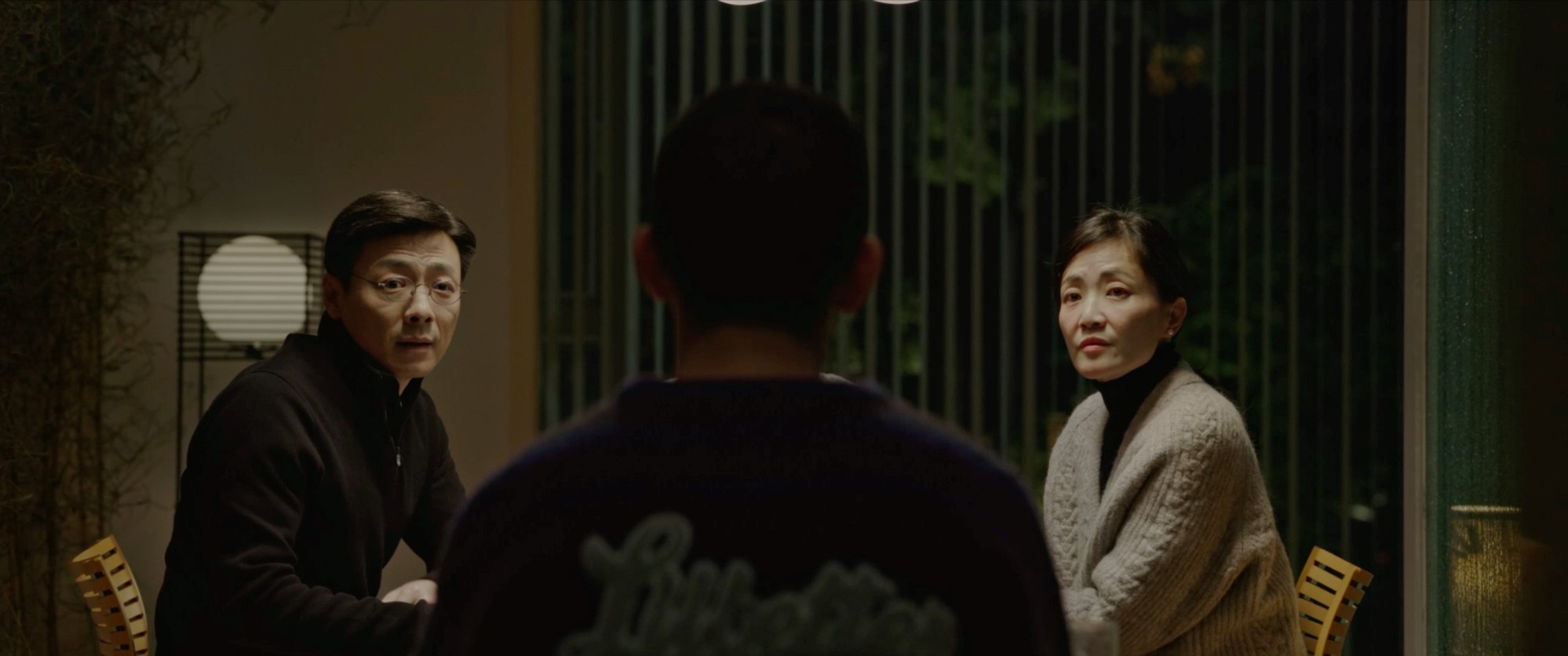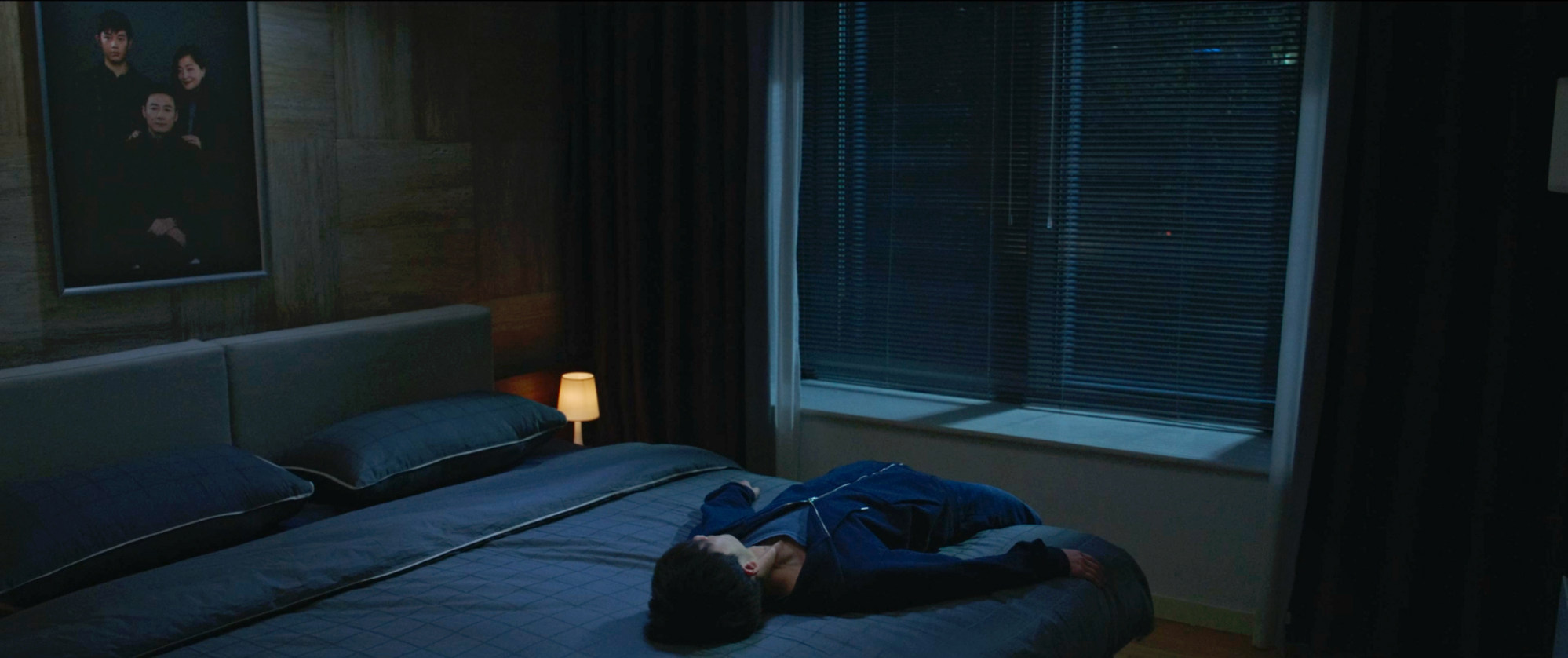
Like Michael Crichton, Lin Jianjie went from science to filmmaking. Ahead of his debut feature’s European premiere, he reveals the Asian directors he looks up to
- Brief History of a Family, Lin Jianjie’s feature-film debut, had its world premiere at Sundance and is about to screen in Europe at the Berlin film festival
- Trained in science, he talks about how his film analyses fractures in a middle class Chinese family and how Asian directors like Wong Kar-wai influence his work
The moment a young director marks their arrival on the international film scene is always a crucial one. For Chinese filmmaker Lin Jianjie, that moment is now.
The beguiling tale of a middle-class Chinese family whose lives become affected by the arrival of a young adolescent in their midst, it’s a story that had been brewing for years before Lin committed it to film.
“What I remember was this feeling I was trying to capture of seeing family space as a mysterious space,” he says when we speak over Zoom.
“In Chinese, we have a saying: home sweet home. It’s always about how sweet it is. But for me, there is also this layer of something mysterious going on, something that from an outsider’s point of view you don’t always get to know.”
Brief History of a Family: Chinese drama exposes cracks in ‘perfect’ family
A film that becomes increasingly surreal as it goes on, Brief History of a Family starts simply enough, as lonely 15-year-old Shuo (Sun Xilun) is invited by fellow pupil Wei (Lin Muran) to play video games in the plush home he shares with his strict parents, Mr and Mrs Tu (Zu Feng and Guo Keyu).
While Shuo, who lives with an alcoholic father, is studious and dedicated, Wei is spoiled and unfocused, showing an aptitude only for the sport of fencing. Gradually, Shuo stirs up different emotions in all three, each projecting something onto this boy.
While the film has already drawn comparisons to Emerald Fennell’s divisive Saltburn, in which Barry Keoghan’s interloper ingratiates himself with a well-to-do family, Lin points out this is “a classic premise” and never intended as the film’s selling point.

“What I was trying to do is to take that and to find a new perspective – hopefully a Chinese perspective – to that,” the director explains.
With the film set in an anonymous city (it was shot in Beijing, Chengdu and elsewhere), Lin’s focus is China’s burgeoning bourgeoisie.
“Especially in recent years there is this new Chinese middle class,” he says. “They are on the rise. A lot of them, they have the financial means to have a better life. And they are trying to design their home to live up to a certain kind of image.
“But because it’s still a very new thing in China, they’re still trying to, in a way, find a collective identity.”

Another element that separates the film from Saltburn and other similar titles is just how dreamlike it becomes in the final third. “I think that was deliberate,” admits Lin, who says it came to him during location scouting in pre-production.
“I realised that we’re getting into the head of the characters more and more. And at the end, for the audience it’s the same. It’s more interesting for them to come up with theories or ideas of their own, but my job is to provide them with possibilities … all of them could be right.”
Lin also deliberately sets his film in China after the end of the one-child policy, with Wei’s parents holding on to traumas from the past and viewing Shuo as a “second chance” of sorts when it comes to building a family.

“I think that speaks to the mentality of the people in general in China,” says Lin. “They lived through the era, it’s done. Whatever opinion they have, they need to just look forward. You can have more than one kid [now] … each family has their own decision to make, whether they want to embrace that or not.”
Making Wei’s father a biologist, one who is impressed by Shuo’s hard-working attitude, allows Lin to include several point-of-view microscope shots – the inference being that he is examining the Tu family on the proverbial glass slide.
A graduate in bioinformatics – Lin studied at Huazhong University of Science and Technology – it was his background in the sciences that encouraged him to take this analytical approach when it came to observing this fractured family.
“We want to get close to them,” he says. “You want to see more. But then can you really see more?”
Eternal affair: Tony Leung and Andy Lau on their new movie, The Goldfinger
Lin grew up in southern China, in Fujian province, and his journey from biology student to filmmaker is an unusual one – and perhaps comparable to that of author and filmmaker Michael Crichton, who studied at Harvard Medical School before writing novels and then directing films.
“I had the opportunity of pursuing a PhD in biology in the field of structural molecular biology in one of the best universities in China, but then I had an early existential crisis,” he admits. The PhD was a 10-year commitment.
“I asked myself, ‘Am I ready for this?’ Then I realised that maybe I need to take a moment and reassess what I wanted to do.”
It was at that point that he switched to filmmaking, winning a place at New York University’s prestigious Tisch School of the Arts, where he gained a Master of Fine Arts degree.

Two short films came out of his time at NYU: A Visit (2015), a satire about corruption, and Gu (2017), a story about a family’s last reunion in court. A third, “passion project” Hippopotami, seen through the eyes of a little girl, which he shot right before Brief History of a Family, is in post-production.
Lin had some catching up to do when it came to educating himself about world cinema. “I actually got into film really late, right before I went to film school,” he admits.
“When I was a kid growing up, I didn’t really watch films much. But when I started preparing for film school, I watched almost everything. The masters. I just tried to get a sense of the history of cinema a little bit, both from the East and from the West.”

The same could be said for Lin. Now based in Beijing, he is weighing up what his follow-up feature will be, sifting ideas to see “which seed will grow”.
And what about a project in America? “I try to keep my options open,” he says, cautiously. “I guess it really depends on what opportunities come up next.”

 (1).JPG?itok=0BHk6odg&v=1665981271)